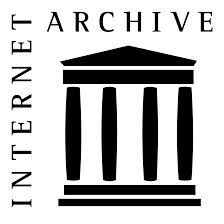The Internet Archive, the online repository of millions of digitized books, wants to shield its readers from other’s prying eyes — like the government’s.
On Thursday night the nonprofit announced new privacy protections to make it more difficult to see users’ reading behavior on the site, by implementing the encrypted Web protocol standard HTTPS and making it the default. Most users will soon be using the secure protocol, which is designed to protect against eavesdropping and what are called “man-in-the-middle attacks,” the group said. The protections were announced during an event at the organization’s headquarters in San Francisco.
Recent revelations over government surveillance and National Security Agency programs like Prism were a major driver behind the changes. “Based on the revelations of bulk interception of web traffic as it goes over the Internet, we are now protecting the reading behavior as it transits over the Internet by encrypting the reader’s choices of webpages all the way from their browser to our website,” the group said in a Friday blog post, pointing to NSA’s “XKeyscore” tool in particular.
SOURCE: computerworld.com
The opinions expressed in this post belongs to the individual contributors and do not necessarily reflect the views of Information Security Buzz.



